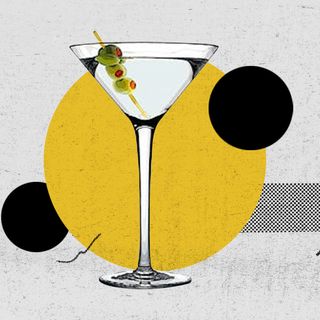Did you know that extroverts suck at giving people personal space? Or that introverts have a lot less energy than extroverts do? Generalizations like these sound relatable and believable, but often have no real research to back them up. Yet, people enjoy identifying themselves as either side of the chattiness binary so much that there’s an economy of listicles that caters to furthering the belief that introversion and extroversion are unique personality signifiers.
However, introversion (choosing to spend more time alone) and extroversion (receiving energy from external stimulation) aren’t binaries. At least, that’s what Carl Jung, the founder of analytical psychology and the man who popularized the introversion-extraversion personality theory, said. In Conversations with Carl Jung & Reactions from Ernest Jones, Jung states, “There is no such thing as a pure ‐ extrovert or a pure introvert. Such a man would be in the lunatic asylum. Those are only terms to designate a certain penchant, a certain tendency.”
Jung believed that classifications like introversion and extroversion were merely points to refer to, and that there were fairly balanced people who either heavily or barely drew influence from both the outside and their internal thoughts. Plus, he also pointed out that when people are either extremely well-balanced or neurotic, there’s no clear way to know if they lean towards introversion or extroversion, let alone fit into a binary.
Related on The Swaddle:
The MBTI Personality Typing Test Has No Basis In Science; So Why Do We Keep Taking It?
Plus, research confirms that introversion and extroversion have nothing more than mere correlation with either excelling at or not enjoying public speaking, leadership, relationships, and social interactions. Multiple factors other than how we are stimulated determine how human beings behave in such instances, which means mapping out a personality by virtue of one tendency is a massive stretch.
Jung, while speaking to Dr. Richard Evans about the introversion-extroversion theory, also predicted our current predilection for relatability, added, “You know how people are. They have a catchword, and then everything is schematized along that word.”
French sociologist Jean Baudrillard once posited that human beings have replaced all of reality with models and mapped out versions of what reality should be. Choosing to relate to pure introversion or extroversion as a personality type can be a symptom of modeling our realities rather than merely living them. Plus, when we are set in such beliefs, we experience confirmation bias — a type of cognitive bias that makes us accept all information that supports what we chose, and reject the information that opposes our beliefs. In this case, since we all just might be some type of ambivert, time to take the extremely relatable generalizations we see online with a pinch of salt.




